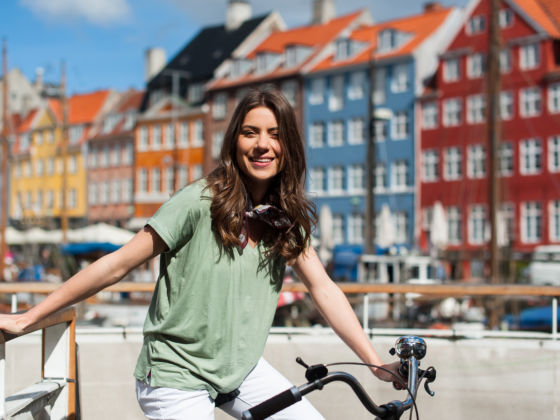Linguists argue that Danish is one of the hardest languages to learn. Due to an overabundance of vowel sounds, it is proven that Danish children learn to speak later than most other European countries. With a reversed word order and 3 unique letters (æ, ø, and å) that non-native Danish speakers find hard to pronounce, it is no surprise that when translated into English, the Danish have some of the funniest expressions out there.


The 15 Funniest Expressions in Danish (and How to Use Them)
Here are 15 of these funny expressions in Danish and how to use them in cultural context.
1. When Danes are surprised they don’t say “holy cow!”… rather, they say “take a whole vacation!” (hold da helt ferie)
2. You won’t hear “Jesus Christ!” in Denmark… instead they use “gentle Moses.” (milde Moses)
3. When a Dane wants to know the agenda, they will ask, “what’s on the wallpaper today?” (hvad er på tapetet i dag?)
4. If someone wakes up early in Denmark, they “woke up before the devil puts his shoes on.” (før fanden får sko på)
5. A Dane doesn’t “kill two birds with one stone”… instead he “hits two flies with one swat.” (slå to fluer med et smæk)
6. If a Dane is very drunk, they are “chicken drunk” (hønefuld) and “fairly withered.” (rimelig vissen)
7. And after having too many, a Dane won’t be “under the table”… they’ll be “in the fence.” (i hegnet)
8. A Dane is also never “wrong”, they have just “gone wrong in the town.” (gået galt i byen)
9. In Denmark you don’t “feel stressed”… instead you’ve “gone down with the flag.” (gået ned med flaget)
10. If a Dane likes to read a lot, they may be referred to as a “reading horse.” (læsehest)
11. When someone in Denmark is very slim, they will be described as “eel slim.” (Åleslank)
12. When it’s really windy, the weather will be described as “half a pelican.” (det blæser en halv pelikan)
13. In Denmark you don’t get lucky… instead you’ll “shoot the parrot.” (skyder papegøjen)
14. When a Dane expresses disbelief in something you’ve done, they might say “you must have eaten nails!” (du må have spist søm)
15. In Denmark you’re never on “on good terms”… instead you are “on a good foot”. (på god fod)